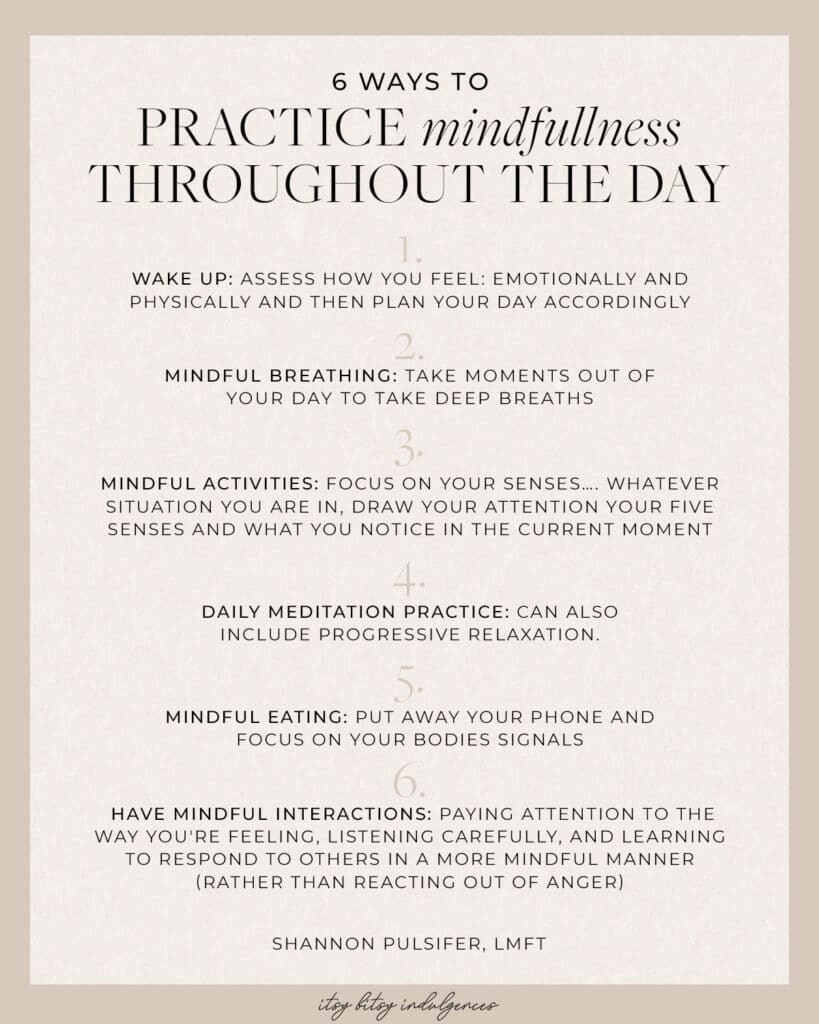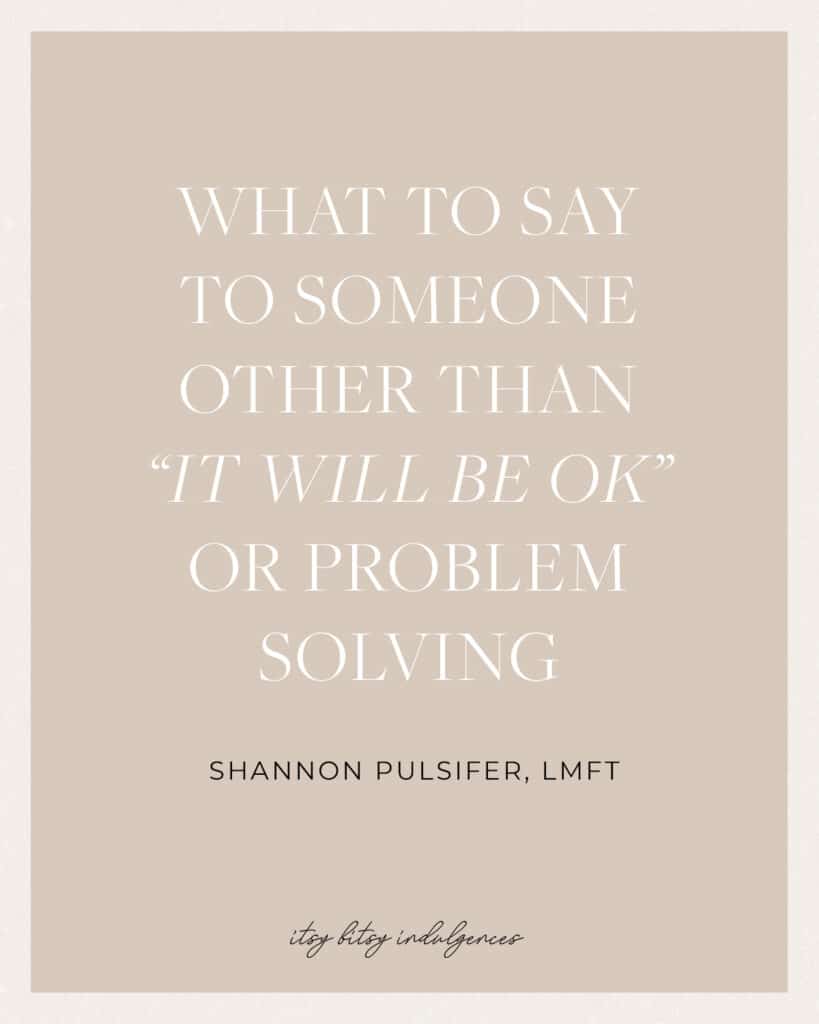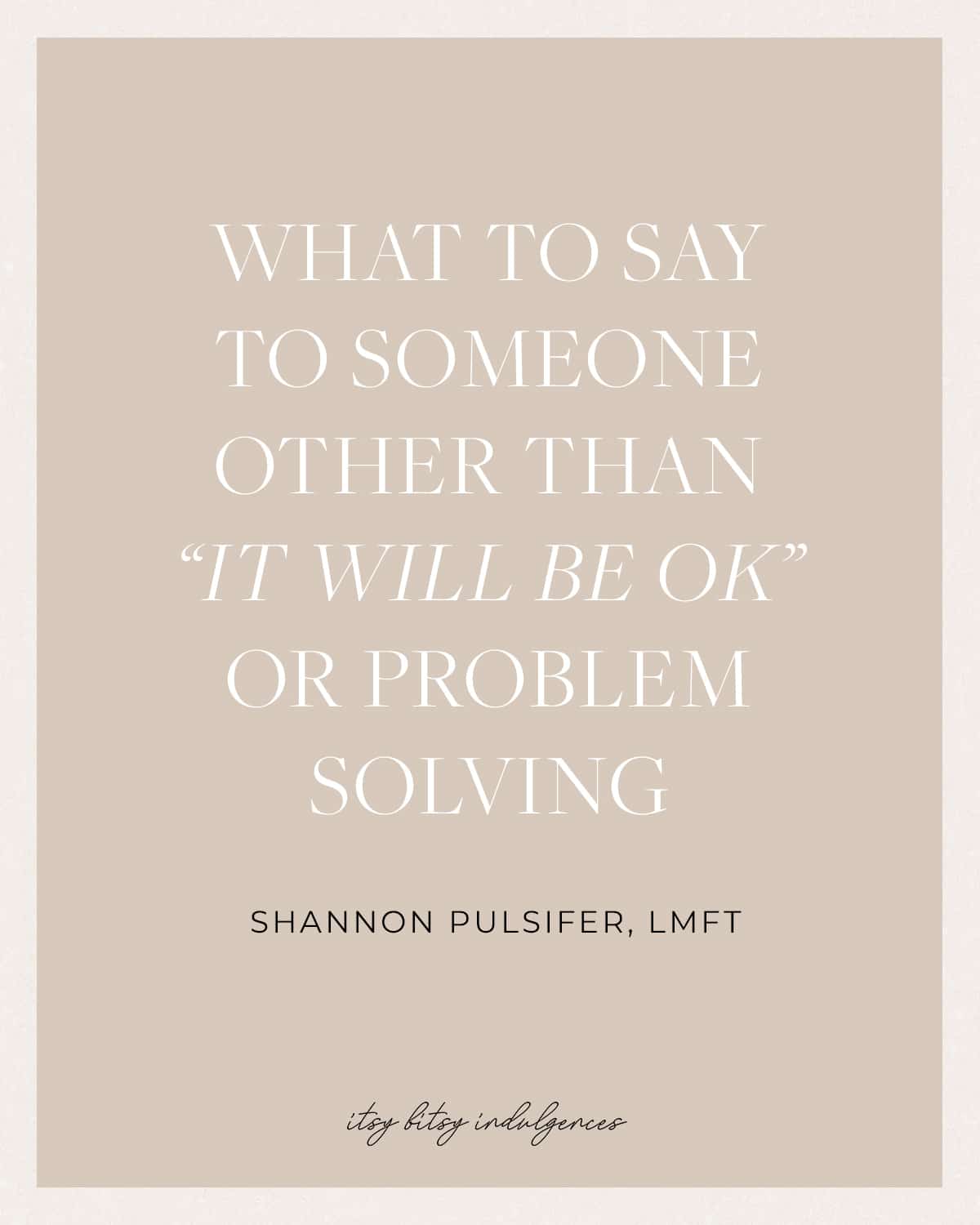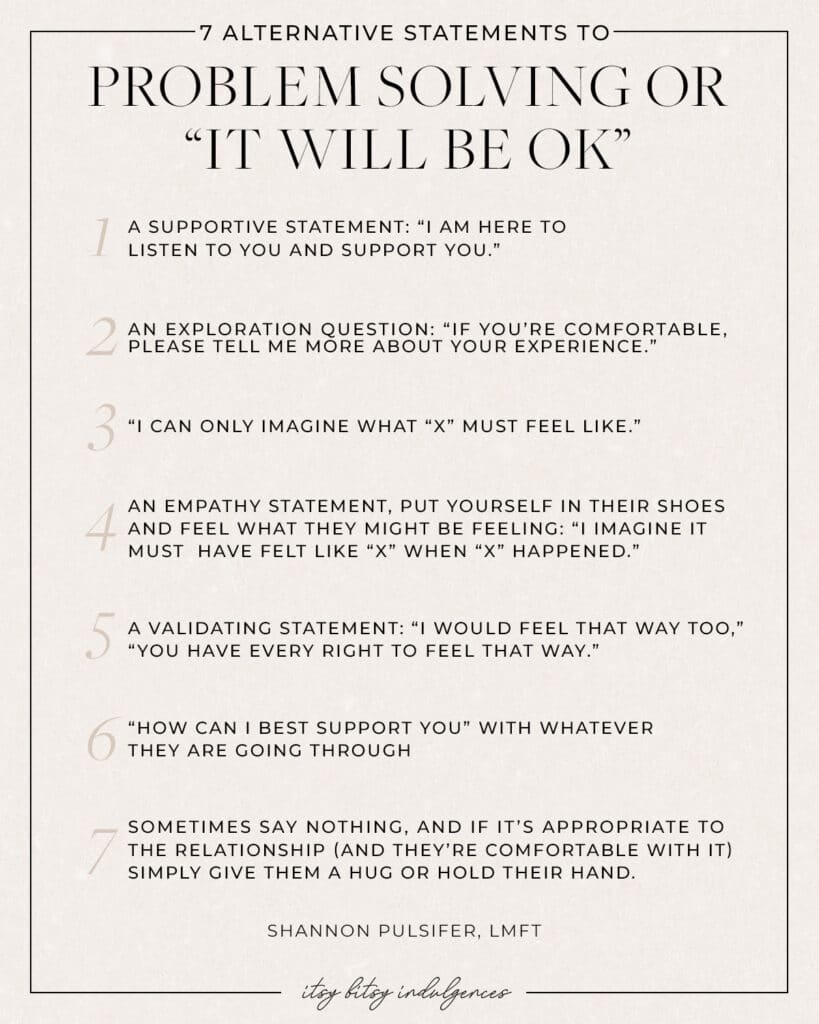Well, I just had a 30 minute stand off with my little two year old on eating 4 carrots. Mom eventually won… the winning statement was “how about some hummus with those carrots.” My artful negotiation skills have really skyrocketed since becoming a mom…
Anyway, over the past year or so, I feel as if I’ve had numerous conversations with people about challenging times they’re going through. Which I think is probably true for most of us… whether it’s a family, friend, co-worker, or anyone else you might know… the past several years have been a challenge for people, for varying reasons….
And when I think about the best ways to support a loved one, I can’t help but think back to the days of my practicum and graduate school classes… where we basically learned how best to respond to clients and provide them with the support and safe space that they need… in ways that didn’t involve the easy “Everything is going to be ok…” or trying to solve their problems (problem solving is a facet of therapy, but a lot comes before that stage…. ). It took a lot of awkward roll playing before we even ended up in a face to face session with a client, but it was so important….
So important because, while the responses above aren’t necessarily bad, they just miss opportunities to connect and help another person feel really heard and understood. And I think we all really want our loved ones to feel heard, understood, and supported when they come to us with something that is weighing heavily on their hearts and minds. Given that, I rounded up 7 alternative statements we can use when listening to someone that avoids the urge to problem solve and/or tell someone everything will be ok (I also feel as if I should note that if someone comes to you and asks you to problem solve with them or if they ask you if you think everything will be ok (and you do)… by all means, go that direction… they’re asking you to and therefore, telling you how best you can support them… they basically answered question #6. Additionally, there are of course many other supportive ways to respond, I’m just sharing the few that I’ve found to be most helpful). I hope it’s helpful.
** Disclaimer: This content is for informational purposes only. It is not intended to be a substitute for professional advice, diagnosis, or treatment. Always seek the advice of your mental health provider with any questions you may have. Never disregard professional psychological or medical advice nor delay in seeking professional advice or treatment because of something you have read on this blog.













